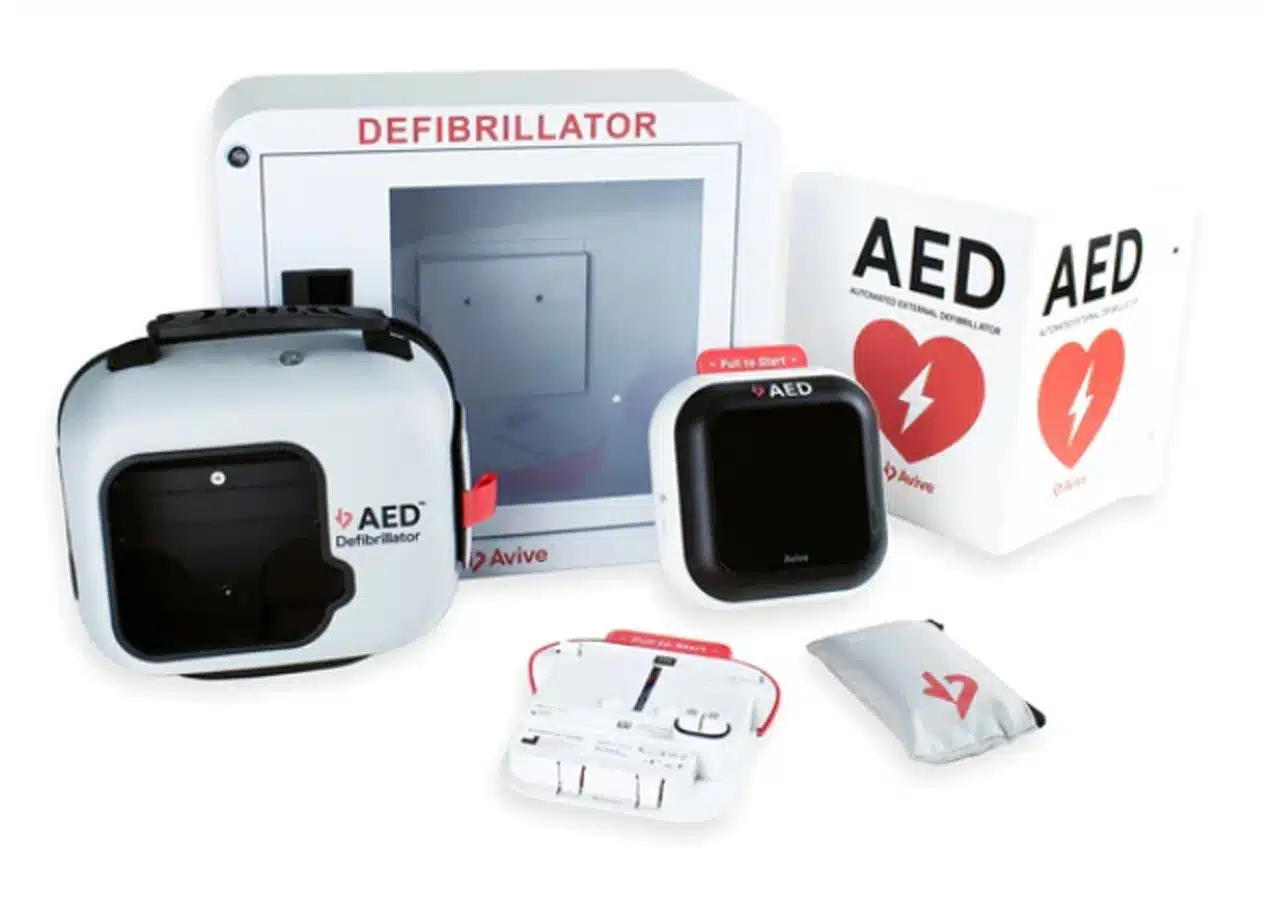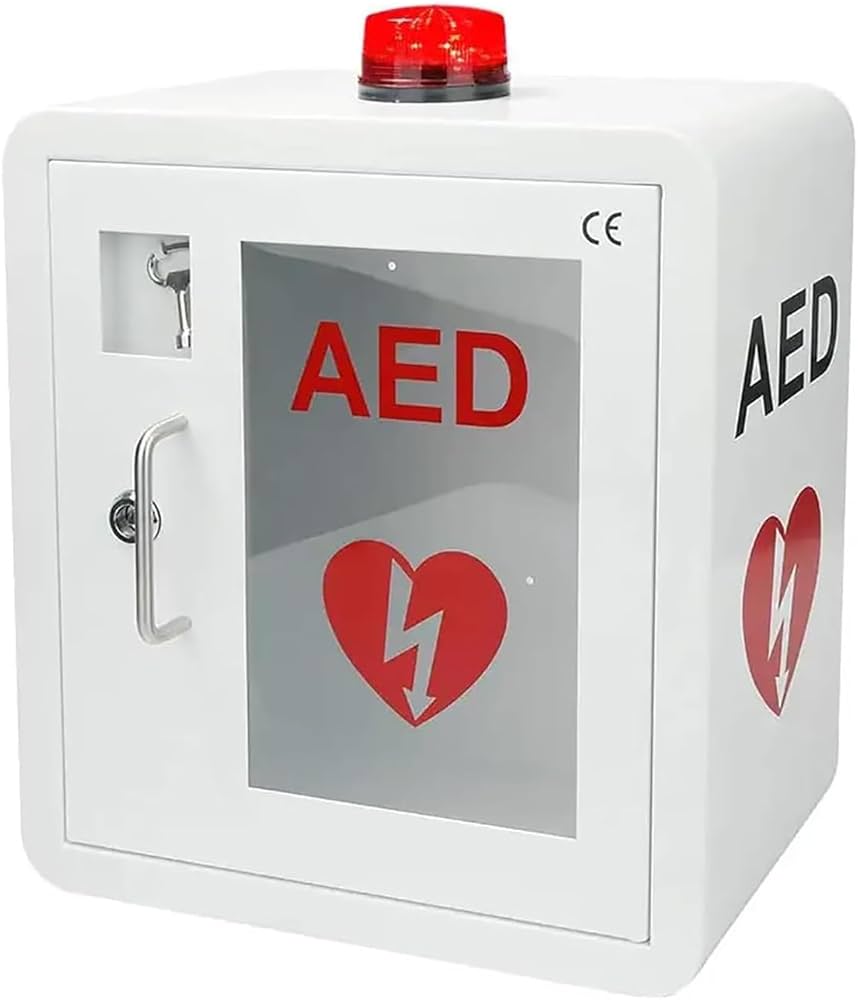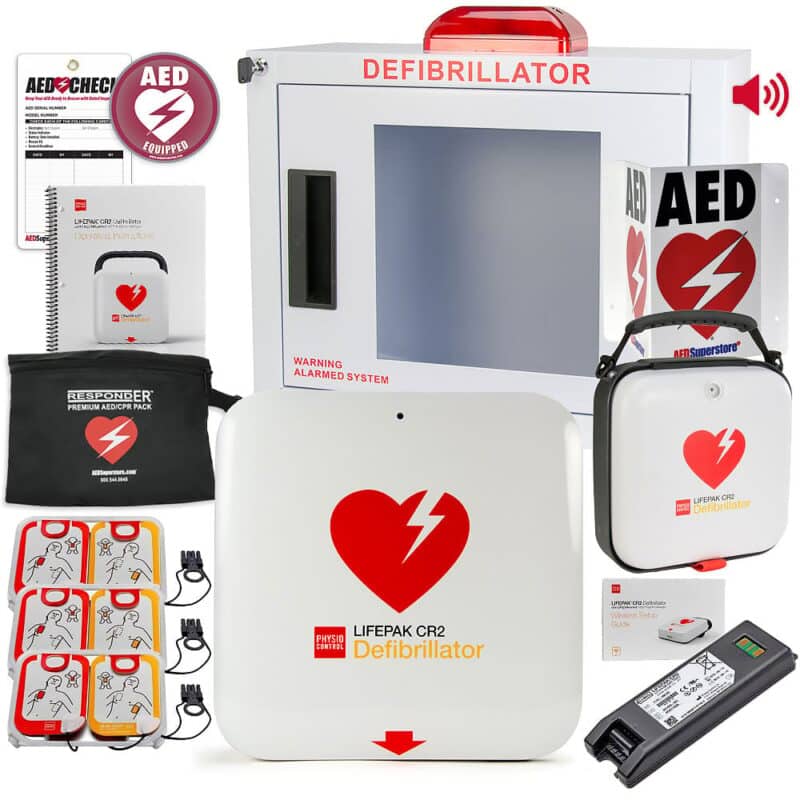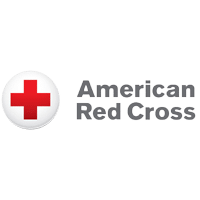No products in the cart.
AED's
Selecting an AED for Church: A Comprehensive Overview
Automated External Defibrillators (AEDs) are lifesaving devices used to assist those experiencing sudden cardiac arrest (SCA). Churches play an essential community service role and would benefit greatly from having an AED for church on hand for sudden cardiac arrest patients. We’ll walk through selecting one for your church as well as provide helpful insights and grants available; to make an informed decision.
Why Every Church Should Own an AED (Automatic External Defibrillator)

Every church must possess an AED (Automatic External Defibrillator). Sudden cardiac arrest can strike without warning and affect people of all ages or health backgrounds, so having access to an AED device in church should be seen as essential. A defibrillator analyzes heart rhythm before administering an electric shock to restore normal rhythm if required – prompt use can significantly increase chances of survival and prolong survival rates.
Churches host numerous events ranging from worship services and community meetings, to social activities. Since these gatherings often attract older adults who could be vulnerable for cardiac incidents, having access to an AED for Churches provides peace of mind as well as ensures preparedness should an emergency occur.
Types and Features of AEDs
When purchasing an AED for use at your church, keep these factors in mind:
Fully Automated AEDs:
These AEDs analyze heart rhythm and deliver shock if necessary – without user interaction required, making them perfect for situations in which multiple people might require use in an emergency situation.
Semi-Automated AEDs:
These AEDs require users to press a button in order to administer shocks once their devices have determined it necessary, providing both ease of use and user control in one device. They aim for balance between ease and user involvement when providing therapy.
Public Access AEDs:
Intended to meet the demands of environments with heavy foot traffic, these AEDs come equipped with features designed for quick use in high footfall environments. Common features are visual and audio prompts to assist the user through this process.
Compact and Portable AEDs:
Ideal for churches that need discreet solutions with limited space. Easy to store and transport, compact AEDs provide constant accessibility.
Key Features to Consider
When purchasing an AED for your church, be mindful of these characteristics:
Ease of Use:
Select an AED that features clear audible instructions and visual prompts so even those without medical experience can operate it effectively when an emergency strikes. This ensures they can use it effectively during times of medical crisis.
Maintenance Requirements:
Look for an AED that requires low levels of maintenance; some models feature extended battery life and self-check features to make sure it remains ready when needed.
Durability:
Choose a AED For Church device suitable to the conditions found within your church environment, including outdoor settings. An effective device must be both rugged and weather-resistant in order to perform efficiently in any setting.
Training Support:
Some manufacturers provide programs or materials designed to familiarize church staff and volunteers with how to use AEDs effectively for emergency responses. Proper AED training ensures an immediate and successful response during emergencies.
AED Grants for Churches
Acquiring an AED may represent a considerable financial investment for churches; fortunately, grants and funding options exist that may help offset this expense:
Local and National Grants:
You could research grant opportunities available locally (such as from organizations like the American Heart Association, local health departments or community foundations ). Apply accordingly once your research is complete.
Corporate Sponsorships:
Some businesses provide financial and/or in-kind donations for local public health initiatives. Reach out to local businesses in order to explore possible sponsorships or donations opportunities.
Fundraising Events:
Hosting fundraisers is one of the best ways to raise enough money to purchase an AED. Consider holding community events or collecting donations as you attempt to accumulate enough capital for its purchase.
AED Manufacturer Programs:
Some AED manufacturers provide discounts or special programs for non-profit and religious organizations. Contact the manufacturers directly in order to explore available options.
Maintain and Utilize An AED

Once your church has acquired an AED, it is crucial that it remains properly maintained and accessible at all times:
Regular Inspections:
For best results, regularly perform tests to make sure the AED is functioning optimally. Specifically, check that its battery and pads haven’t expired while making sure its surface area remains uncracked and functional.
Training and Drills:
Provide training to church staff and volunteers on how to use an AED defibrillator device and organize mock drills regularly so all are familiar with it and emergency procedures.
Placing Clear Signage:
Place visible signage that clearly identifies where an AED for churches can be found within your congregation and ensure it can be easily reached by all members.
Emergency Plan:
Be sure to include AED use into the church emergency response plan so everyone knows how to use and access it during an emergency situation. Involve all members in taking responsibility for using it when needed.
Conclusion AED For Church
Selecting and maintaining an AED for your church congregation is a critical element in assuring its safety and well-being. By carefully choosing an appropriate unit, exploring grants available, providing adequate training, and maintaining it properly, your church’s ability to respond swiftly in case sudden cardiac emergencies arise increases dramatically. Making such an investment also shows its commitment to its health and well-being while giving peace of mind for your members and congregation alike.
Call to Action If your church lacks an AED, consider initiating a fundraising drive or seeking grants in order to secure one. Raise awareness within your community about its value as well as ensure your church can respond efficiently in case cardiac emergencies arise.






